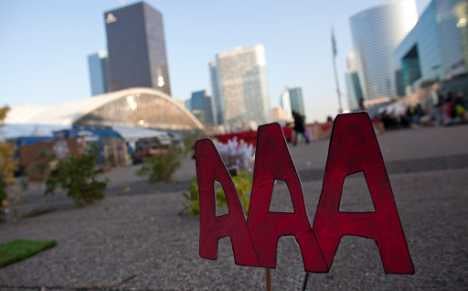The ratings “reflect our view of (Germany’s) modern, highly diversified, competitive economy, and the government’s track record of prudent fiscal policies and expenditure disciplinem” S&P wrote in a statement.
“Furthermore, we believe the German economy has demonstrated its ability to absorb large economic and financial shocks.”
Germany is therefore one of a very select number of countries to enjoy the best possible credit ratings, alongside Finland, Luxembourg and the Netherlands.
S&P also affirmed its stable outlook for Germany’s rating, meaning no downgrade was expected.
Germany has held up better to the crisis than all of its neighbours, thanks to deep restructuring and painful reforms undertaken a number of years ago.
But it has not escaped completely unscathed and growth ground to a halt at the end of last year and the average annual growth rate this year would be much slower than the 0.7 percent seen in 2012.
Nevertheless, S&P said it was pencilling in growth of 0.4 percent in 2013 and “steady, albeit very modest, growth over the medium term, averaging close to 1.0 percent in real gross domestic product per capita terms in 2013-2016.”
AFP/kkf



 Please whitelist us to continue reading.
Please whitelist us to continue reading.
Member comments